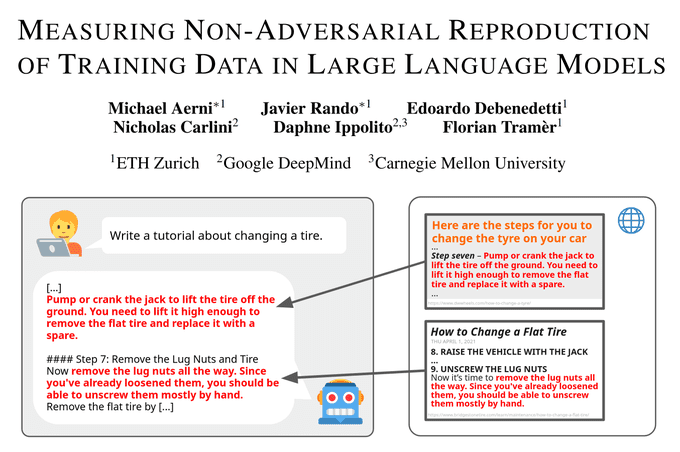The Unoriginality of Large Language Models
Large Language Models (LLMs) like ChatGPT have been hailed for their ability to generate human-like text. However, recent observations suggest that these models often produce content that is unoriginal and repetitive. According to a tweet by @paulg, LLMs tend to output moderate snippets of text that are unoriginal and contained verbatim in their training data. This phenomenon raises questions about the creativity and originality of AI-generated content.
Chatbots and Their Limitations
Chatbots, powered by LLMs, are increasingly used in various applications, from customer service to content creation. However, their tendency to generate unoriginal content can be a significant drawback. A study highlighted in the Economic Times found that including evidence in questions can confuse ChatGPT, lowering its accuracy. This limitation underscores the need for further research and development to enhance the reliability and originality of AI-generated content.
The Impact on Creativity
An experiment reported by TechCrunch found that while AI can boost individual creativity, it may lower collective creativity. The study involved participants writing short stories with and without AI assistance. Those with lower creativity metrics saw improvements in their work when using AI-generated ideas. However, highly creative individuals did not benefit as much from AI assistance. This finding suggests that while AI can help less creative individuals, it may homogenize creative outputs, reducing overall novelty.
Ethical Considerations and Misinformation
The use of LLMs in content creation and information retrieval raises ethical concerns. Google’s and Microsoft’s chatbots have been found to make up statistics, such as Super Bowl stats, leading to potential misinformation. This issue highlights the importance of developing AI systems that are not only accurate but also transparent and accountable.
The Role of Task-Specific Models
Despite the rise of LLMs, task-specific models remain relevant. Amazon’s Bedrock and SageMaker platforms offer both task-specific models and access to LLMs, catering to diverse AI needs. These platforms emphasize the importance of using the right tool for the right task, balancing the capabilities of LLMs with the precision of task-specific models.
Future Directions for AI Development
As AI continues to evolve, it is crucial to address its limitations and ethical concerns. Researchers and developers must focus on enhancing the originality and reliability of AI-generated content while ensuring transparency and accountability. The potential for AI to impact various industries is immense, but it must be harnessed responsibly to avoid the pitfalls of unoriginality and misinformation.
Related Articles
- 5 Ways to Implement AI into Your Business Now
- AI Writing Assistants for Improving Content Quality
- LucaAI
- The Future of Data Science and Machine Learning with AbacusAI’s ChatLLM AI Assistant
- Top 5 AI Tools for Students
Looking for Travel Inspiration?
Explore Textify’s AI membership
Need a Chart? Explore the world’s largest Charts database
